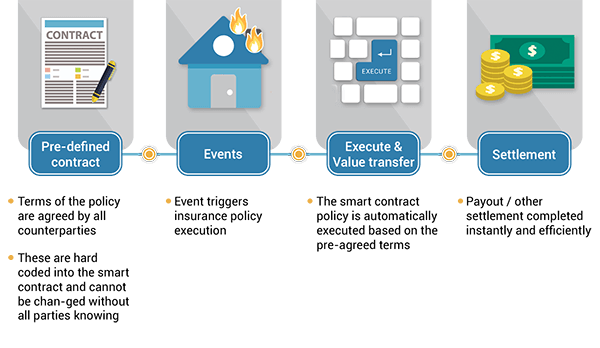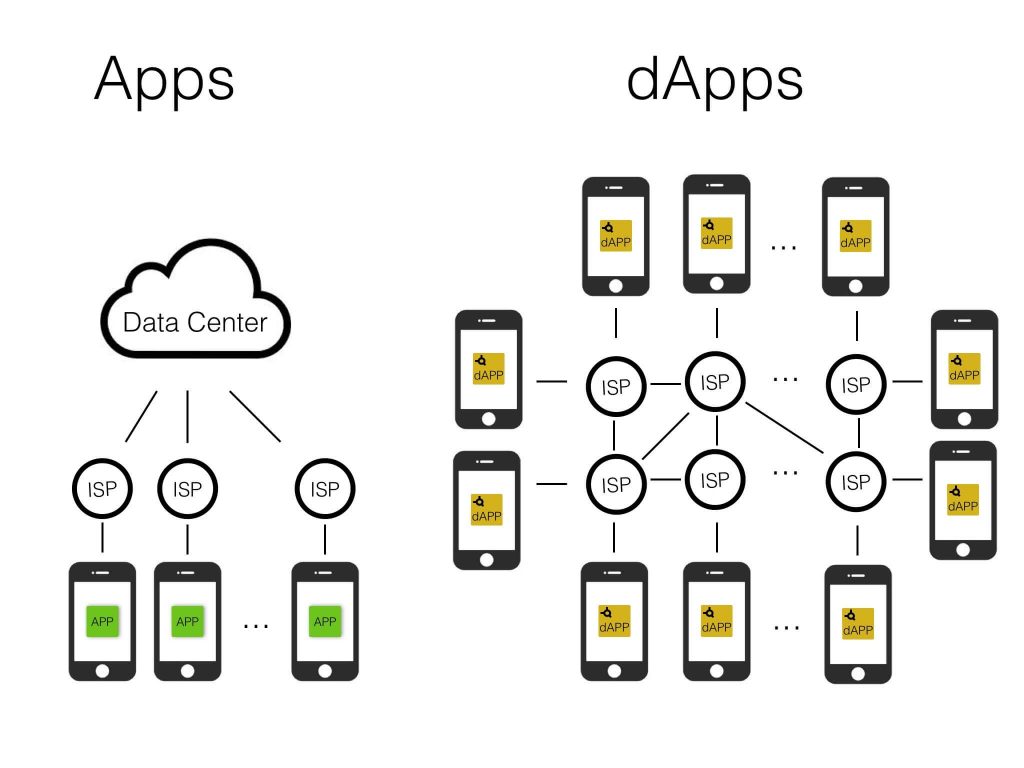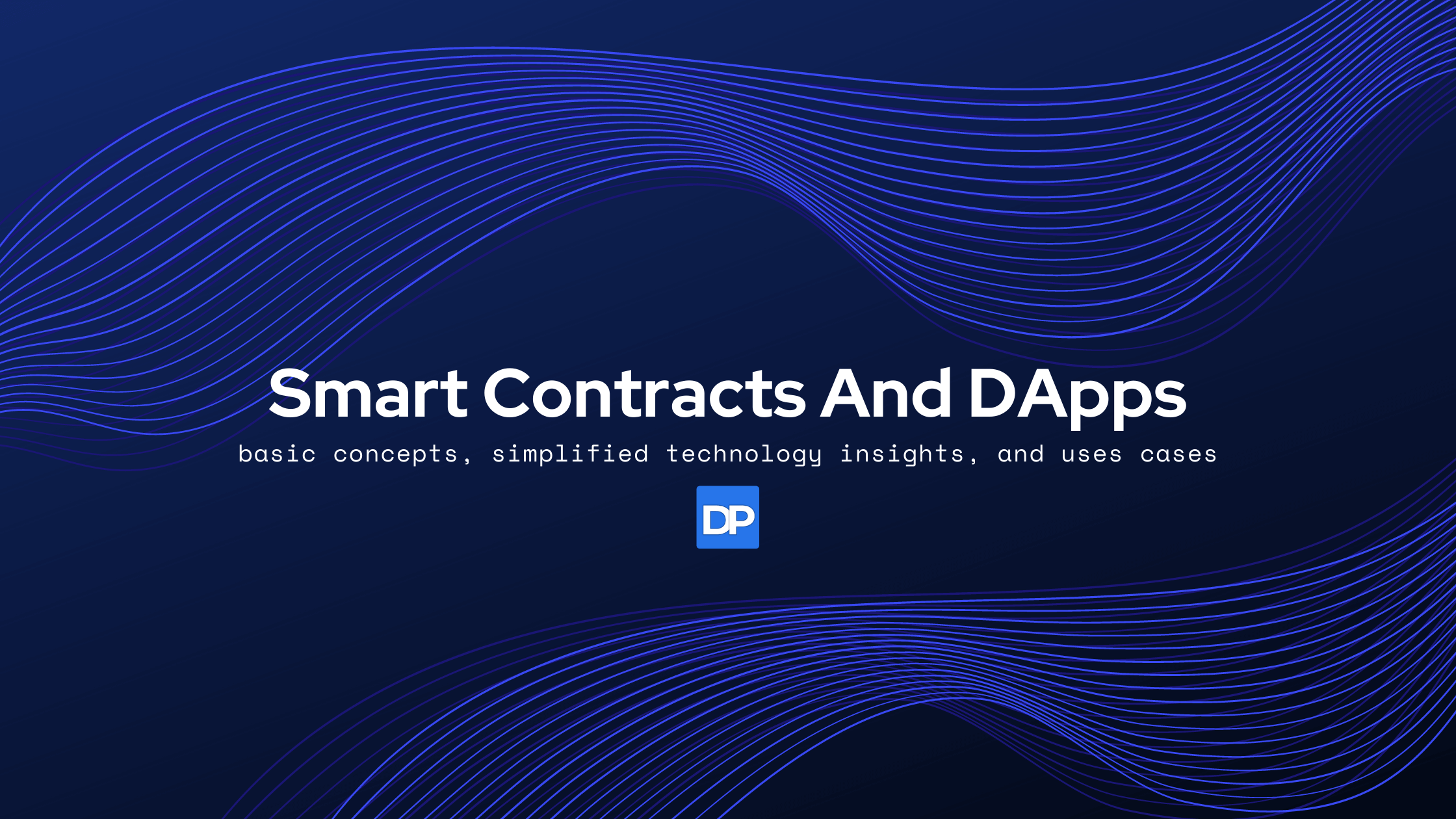Smart contracts and DApps are two significant subjects of blockchain development. Smart contracts are more of a system that helps to facilitate transactions of blockchain. On the other hand, DApps are smartphone apps based on blockchain technology and utilize smart contracts for execution.
If you’re looking for a blockchain tutorial, you should continue reading this article about smart contracts and DApps. This article will cover basic concepts, simplified technology insights, and uses cases of smart contracts and DApps.
Blockchain Tutorial: Defining Smart Contracts

Smart contracts in blockchain are computational codes. These are simply translations of an agreement. The agreement contains a set of rules for a transaction to take place between two parties.
Blockchain coders translate the agreements to smart contracts in programming languages like C++, Java, etc. For a transaction to take place, a middleman is not necessary.
Smart contracts will automatically execute if the set of rules comply during a transaction. Cryptographic codes execute smart contracts in decentralized ledgers to keep the data immutable.
A simple example of a smart contract could be a vending machine. There is no retailer to sell the products to you. You comply with the contract by entering a coin or banknote that matches the product price (or more). As a result, the machine dispenses the merchandise.
How Smart Contracts Work in Blockchain
Blockchain systems utilize smart contracts to execute transactions for money, cryptocurrency, property, digital art, shares, etc. Smart contract coders include a set of rules while programming the contracts. This set of rules could include transaction rules, fines, data security, etc.
Smart contracts facilitate transactions in a conflict-free way. Both parties can get a hold of the documentation that describes the set of rules. Now, if the parties agree, then they’ll start the transaction execution.
In cryptocurrency exchanges, these transactions are purchasing crypto coins using money. If the investor agrees to the terms, he pays a certain amount of fiat currency to the coin holder. The coins’ holder surrenders ownership to the new owner.
All the details of the above transaction stay written in a digital document. Hash codes back the document authenticity. A new block appears on the blockchain that nobody can change.
A network of decentralized computers works on smart contract verification by reviewing the set of rules. The blockchain enforces strict rules, so reviewers do not alter the transaction.
A security breach of smart contract verification and block generation process is virtually impossible. There could be millions of computers in this process of smart contract verification. Sabotaging all of them is statistically unworkable.
How Smart Contracts Benefit the Blockchain
Smart contracts find increased acceptance among several sectors due to the following benefits:
1. Security
Complex data encryption protects smart contracts from hacking attacks. Apart from this, all blocks of the blockchain have back and forth reference data. Hackers will have to change the entire blockchain only to alter one block, which is virtually impossible.
2. Trust and Clarity
As the transaction proceeds based on a predefined set of rules. Smart contracts offer enhanced clarity and trust. Both the parties get to know the set of rules before engaging in a transaction. As there is no third party, so the possibility of rule alteration is out of the question.
3. Speed and Accuracy
If a transaction meets all the predefined conditions, then the settlement takes place instantly. No paperwork and the third party make the system faster, accurate, and efficient.
4. Reduced Transaction Cost
Customers and vendors save time and money through smart contracts. If there are no intermediaries, you do not need to pay any brokerages. When considering this scenario for millions of dollars, you can see the big picture of savings.
Real-Life Applications of Smart Contracts
To know the value-added capabilities of smart contracts, let us explore real-life uses below:
1. Insurance for Flight Delays
The very first example is of Axa launching its flight delays insurance platform based on smart contracts. The developers built it on the Ethereum blockchain.
The terms of the insurance are transparent, and settlement of insurance claims is also automatic. When the system notices a delay of two hours or more, it automatically initiates ticket refunds.
2. Managing Supply Chains
Smart contract-based systems are highly efficient in managing a transparent supply chain over conventional ledger systems. Every step of the chain finds its existence in the distributed ledger when you employ smart contracts. The final data is immutable.
The supply chain management consortium between IBM, Walmart, and Tsinghua University in Beijing set sail in October 2017. It is an experimental project that saw success in large-scale supply chain management of Walmart retail.
Blockchain Tutorial: Defining DApps

DApps are decentralized mobile apps that run on blockchain networks and utilizes smart contracts for transaction execution. Standard smartphone apps run from a centralized server, but Dapps disperses themselves on a distributed computer network.
The Ethereum blockchain is the most preferred medium for DApps development. Ethereum is an all-purpose blockchain that also supports mobile app development.
Solidity is the principal coding language of the Ethereum blockchain. As developers started building DApps on the Ethereum blockchain, smart contracts became popular in DApps. DApps’ data is decentralized, and no single entity can control the flow of data or the core program.
How DApps Work on Blockchain
The core function of any DApps is to function as a smart contract. Programmers code the set of rules for transactions within the app. If the parties meet the exchange rules, the app facilitates the transaction.
This entire orchestrated system stays within a blockchain network like the Ethereum blockchain. Previously, a computer server would cater to the needs of the network nodes from a centralized position. Nowadays, smart contract-based apps can function from peer-to-peer blockchain networks.
There are two types of DApps based on their device compatibility, and these are:
1. Web3 DApps
You can access the DApp functionalities from any computer web browser. There is no necessity of downloading apps to any device.
2. Native DApps
These are smartphone apps for devices like Android and iPhones. You may procure the apps from App Store or Google Play Store.
Which Tools Help You Develop DApps
Ethereum is the most widely used blockchain for DApps development. Other blockchain candidates for DApps development are EOS, TRON, NEO, Cosmos, and Developcoins.
Following is a roadmap that developers follow to build a DApp on the Ethereum blockchain:
1. Install the Truffle framework for Ethereum blockchain-based app development.
2. Produce the boilerplate programming code.
3. Initiate the development system environment.
4. Compile the smart contracts.
5. Deploy the smart contracts.
6. Beta test the Ethereum-based DApp.
7. Modify the DApp code based on beta testing or user feedback.
8. Publish the final DApp on Google Play Store or App Store.
Followings are the set of tools that you need to build DApps:
1. Gnosis Multisig
It is the widely used multisig wallet for fund warehousing. It facilitates fund management through multi-signature verification before transactions.
2. Abridged SDK
It is an SDK for intuitive Web3 DApps development. It also provides a smart wallet for batch payments or transactions.
3. EtherLime
EtherLime is the tool that facilitates the effortless and quick deployment and development of smart contracts on the Ethereum blockchain.
How DApps are Beneficial
Centralized apps may be working just fine, however they lack one or many of the following benefits that DApps can offer:
1. Speed
As the app depends on peer-to-peer data transfers, there is no possibility for the occasional downtime of a centralized server. This problem happens a lot while you use centralized apps.
2. Security
DApps help you protect your private data from prying eyes globally. DApps are not maintained from a server by a single agency, so there is no question of private data leaks.
3. Cost
The Ethereum blockchain is undergoing major changes so that it can offer cheap transaction costs for DApps.
4. Transparency
You’ll not face any censorship, blocked access, or other permission issues while using DApps since all the systems are decentralized.
Real-Life Applications of DApps
There have been many DApps, and the following are the important use cases:
1. DeFi or Decentralized Finance
Investors are converging around DeFi products, and the market has already gone above $40 billion potential. The DeFi space is growing rapidly and offering better options for lending and borrowing.
2. Gaming
The most popular that you’ll see for DApps are multimedia gaming and digital collectibles. Games like Gods Unchained and Decentraland show that users are eagerly waiting to welcome DApp-based games.
3. Enterprise Solutions
There are many enterprise-grade DApps for supply chain management, healthcare, online ordering, and insurance business. These apps greatly extend operational efficiency and business performance.
Now you know the importance of DApps and smart contracts for blockchain-based mobile apps. This blockchain tutorial helps you get going with your aspirations for blockchain development.


